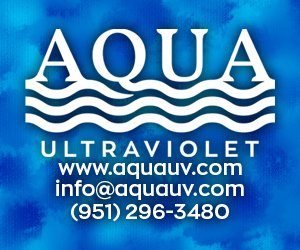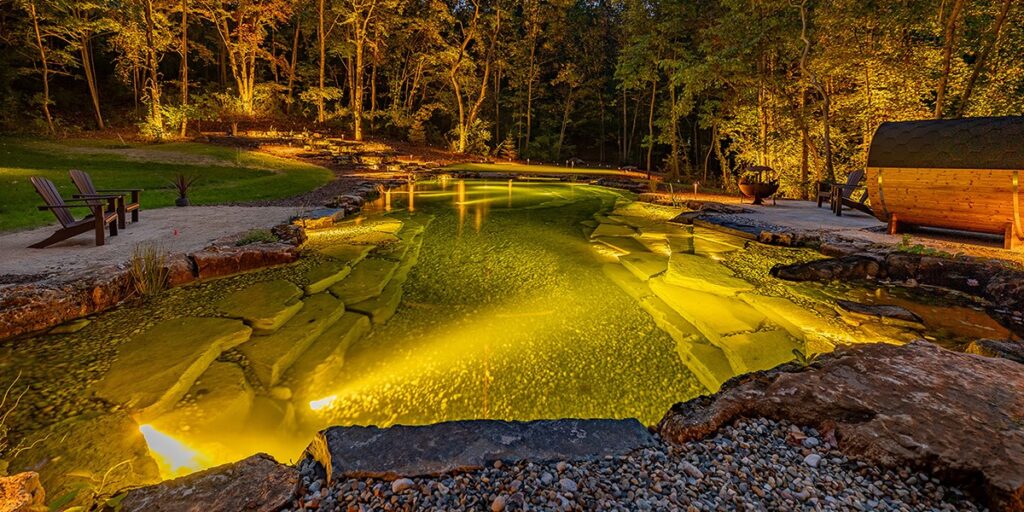 Editor’s Note: POND Trade occasionally publishes online exclusive articles that feature perspectives from around the industry. These articles do not necessarily reflect the views of POND Trade magazine.
Editor’s Note: POND Trade occasionally publishes online exclusive articles that feature perspectives from around the industry. These articles do not necessarily reflect the views of POND Trade magazine.
In the late 15th century, our planet became a smaller place. There were many worlds and cultures that existed prior to this time, but as the 16th century began to wake up, so to speak, all these worlds would come to an abrupt end, become slowly consumed or even face complete extinction.
The start of the 16th century marked the beginning of the globalized epoch we currently live in — the homogenocene. The discoveries of Christopher Columbus, the inadvertent father of the homogenocene, opened a revolving door to the new world that has not been shut since. Worlds literally collided.
Globalization
Today’s world is less diverse, less unique, less private and less mysterious. Almost every major body of water, forest, wetland and other habitat is facing compromise. Species are disappearing from every type of habitat at alarming rates. The global rate of loss for just about everything is actually speeding up. Our world is becoming homogenized.
Since the homogenocene began, our planet has been plagued with wave after wave of invasions — not only by humans, also in the form of microbes, germs, parasites, animals, plants, technologies and economics. For example, not only has the U.S. been inundated by the Coronavirus, but we also continue to deal with invasive species like the Chinese spotted lantern fly, Chinese stinkbug, Indian snakehead fish, Lionfish, zebra mussel, African snail, African bee and Burmese python, all which continue to do damage in 2020. In North America, invasive species currently outnumber native species.The pond industry is no stranger to such invasions, like koi herpes virus (KHV) on the microbial level, water lettuce and hyacinth on the plant level, and Asian carp on the fish level.
Waking Up
As Jim Morrison famously suggested in the ‘60s, “Wake up!” Or as Bob Marley said in the ‘70s, “Wake up and live!” In the ‘80s, Jerry Garcia also implored us to “wake up and find out that you are the eyes of the world.”
While some of us may criticize politicians and celebrities for flying in private airplanes, we hypocritically wait for our next shipment of imported fish to land. Ironically, our fish are flying in even bigger airplanes from even farther, more exotic locales!
These guys were not the first to suggest that we wake up. Many of the greatest personalities and leaders throughout our history have also suggested to us to wake up through numerous speeches and writings. Even the Bible tells us to wake up at least 49 different times.
And now we find ourselves living in the time of being woke. Has the message finally kicked in? Have people woken up? What does it even mean to be “woke?”
Most of what we hear these days refers to being woke in a political or social aspect. Being woke means that the individual is aware and concerned with the current issues of the day and is taking some sort of action.
A Pondy Perspective
I’m not suggesting that pond professionals take to the streets wearing outrageous koi hats. There are many practices that we can all be mindful of as we seek to be more woke.
Each time a pond professional brings fish or plants into this country, they are increasing the chances of a new invasive element. Each shipment potentially brings in exotic who-knows-what — and all the consequences along with it.
We are also blowing up our carbon footprint, contributing to air and ocean pollution, sound and traffic pollution, material waste from packaging, incompatible farming practices, and so forth. We are outsourcing from overseas for fish and plants that are easily found domestically. We are supporting foreign industries and creating jobs overseas when we could be strengthening our same industries right here in the United States. There is nothing “over there” for the pond industry that we don’t already have here.
While some of us may criticize politicians and celebrities for flying in private airplanes, we hypocritically wait for our next shipment of imported fish to land. Ironically, our fish are flying in even bigger airplanes from even farther, more exotic locales! Even after landing here, fish will often again get packed up and flown somewhere else or trucked long distances.
This is common, everyday practice in the pond world. But how “woke” is this?
Best Practices
Let’s start with ponds. We design them. We build them. We service them. The ponds we build are already a strong tool for creating habitats. When designing ponds, try to consciously add an element of conservation to them. We can target certain species we’d like to benefit with our pond designs.
When building ponds, try not to disturb designated wetlands or other habitat areas. Be careful to not disrupt or alter obvious and established drainage patterns within the landscapes. Assess whether your activities could disturb certain soils or destabilize the surrounding landscape, such as nearby hillsides. Check before you dig — and not just for service lines. Take a deeper look for animal nests and try to identify any plants that could be disturbed. Maybe some are worth saving? Be aware of the impact that the construction activities can create. Be courteous to homeowners when working in a neighborhood. Try to buy American for your supplies and equipment.
When servicing and cleaning ponds, save some of the pond water to use again when you fill the pond back up. Make sure that discharged water is not being directed into local waterways like streams and other natural ponds. Are you being responsible with livestock culls from the pond and keeping them out of local waterways? Are you careful with cleaning your equipment before going from pond to pond?
Plants & Livestock
Imagine what would happen if we chose to exclusively work with local plant varieties. We would have some beautiful, interesting native plants to work with if we went that route. We’d get to witness the behavior of plants that are already dialed into the local climate instead of struggling to help exotics, imports, or interstate transplants try to adapt to the local conditions. Such plants often need extra fertilizers and chemicals just to survive. There is an excellent aquatic plant industry right here in the United States with world-class breeders and growers. The aquatic plants are amazing! Do we need to look elsewhere? Support your domestic growers and breeders.
As professionals, we should keep our handling protocols and best practices up to speed. How many professionals currently quarantine the plants that are sold? How many perform deep pruning prior to installation? How many thoroughly rinse plants prior to installation — not just a quick rinse, but using a preferred surface like a lawn, mulch bed or hard top that is well away from the pond so that contamination does not occur? Are you careful when disposing of unwanted plant material? Are plant parts that are infested with destructive pests just tossed away, or are they disposed of properly?
Take the same consideration with livestock. Quarantine should be practiced before allowing the sale of all aquatic livestock — not just fish. We all love our koi and goldfish. Any koi kichi will tell you that buying an imported koi from Japan is superior to buying a domestically bred koi. But is it really?
We have a strong domestic koi and goldfish industry right here in the U.S. Do we really need the imported fish? Aren’t American-bred koi of just as good quality as the Filipino, Israeli, Japanese, Chinese, or European-bred koi? Why not change the focus and invest in domestic koi breeders, or maybe even regional koi breeders? That’d be pretty woke.
There could come a day when koi competitions will feature and represent breeders from every state. Could we make the future “All-U.S. Koi Show” a world-class event simply by changing how we buy? At the same time, we would lessen our carbon footprint and our contribution to various forms of pollution. It would contribute to our economy and create jobs in a conscious way.
What’s Next?
Some view Christopher Columbus as a great benefactor; others might see him as a genocidal zealot. Regardless of how you view him, he singlehandedly changed the course of human history and will be remembered for the entirety of human posterity as one of the most impactful humans of all time.
Indeed, the effects of the homogenocene may seem unstoppable at times. The breakdown of the unimaginably old systems of multiple worlds and the consequences of the homogenocene for this planet are only in its earliest stages. Can the pond industry stop it? Nope. But we can try to make woke decisions and do better in general.
Being woke can certainly lessen the impact of the homogenocene. Being more careful in our field practices, being mindful of what we allow to invade our borders, and deciding to buy more American stock koi, goldfish, aquatic plants and equipment could go a long way. Simple choices and actions can be made in our approach to woke professionalism. How, where and what we purchase, along with our ability to educate our clients seem like pretty easy changes to make.



Excellent article. Makes you stop and think!
Thanks for the read!
Great article. You made some excellent points.